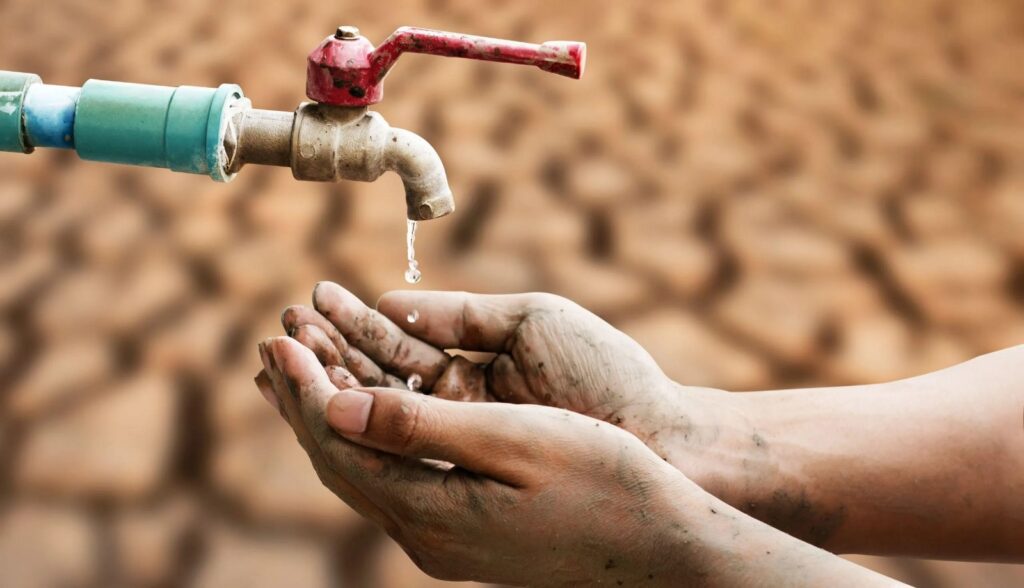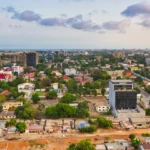Extreme hunger in Eastern and Southern Africa has surged by 80% in just five years, driven by worsening water scarcity that is pushing millions into deeper food insecurity, according to a new Oxfam report.
Released ahead of World Water Day, the report warns that without urgent action, the crisis will only intensify.
World Water Day is observed on March 22 every year. It focuses on raising awareness about the importance of freshwater and advocating for sustainable water management
The report, Water-Driven Hunger: How the Climate Crisis Fuels Africa’s Food Emergency, paints a dire picture of the growing intersection between climate change and food scarcity.
In eight of the hardest-hit African nations—Ethiopia, Kenya, Malawi, Mozambique, Somalia, South Sudan, Zambia, and Zimbabwe—over 55 million people now face extreme hunger, up from nearly 31 million in 2019. That means one in five people in these countries struggles daily to find their next meal.
The Numbers Behind the Crisis
- 116 million people in these countries—40% of the population—lack access to safe drinking water.
- 91% of small-scale farmers rely almost entirely on rainwater, making them highly vulnerable to climate shifts.
- In Ethiopia, food insecurity has soared by 175% in five years, leaving 22 million people struggling to eat.
- In Kenya, more than 136,000 square kilometres of land—an area over twice the size of Ireland—has dried up since 1980, crippling agriculture and livestock.
- In Somalia, a single failed rainy season has already pushed another one million people into crisis-level hunger, bringing the total to 4.4 million, nearly a quarter of the population.
Across the continent, climate change has supercharged extreme weather events—droughts, cyclones, and flash floods—disrupting water supply and crippling food production.
More than 90% of Africa’s tropical glaciers have disappeared, and groundwater depletion is accelerating, leaving millions without a reliable water source.
Globally, flash floods have become 20 times more frequent since 2000, while drought durations have increased by 29%, exacerbating food and water shortages. The report also warns that the ongoing La Niña weather pattern will likely worsen flooding in parts of Southern Africa and South Sudan while triggering severe drought in East Africa, further endangering food supplies and livelihoods.
A Crisis of Inequality and Neglect
While climate change is a major driver of this crisis, poverty, inequality, and chronic underinvestment have amplified its impact. African governments are currently meeting less than half of the $50 billion annual investment needed to ensure water security across the continent by 2030.
Fati N’Zi-Hassane, Oxfam in Africa Director, emphasised the human cost of this crisis: “The climate crisis is not just about numbers—it has a human face. While millions suffer, the biggest polluters and the ultra-rich continue to profit. Governments must step up to protect vulnerable communities.”
Women and girls bear the brunt of the crisis, with many walking up to 10 kilometres daily to find water, often exposing themselves to violence and extreme exhaustion. In some rural areas, they spend hours each day fetching water, time that could be spent on education or income-generating activities.
“At the heart of this crisis lies a justice issue,” N’Zi-Hassane added. “Sub-Saharan Africa receives just 3-4% of global climate finance, despite facing some of the worst impacts. Wealthy, polluting nations must pay their fair share—not as charity, but as justice.”
The report urges African governments to prioritise investments in water infrastructure, climate adaptation, and social protection to mitigate future shocks. It also calls on global leaders to increase climate finance commitments and hold major polluters accountable for their role in worsening the crisis.
As the world marks World Water Day, the message from Africa is clear: The time for action is now. If governments and the international community fail to act, the human and economic toll of this water-driven hunger crisis will only worsen in the years ahead.










